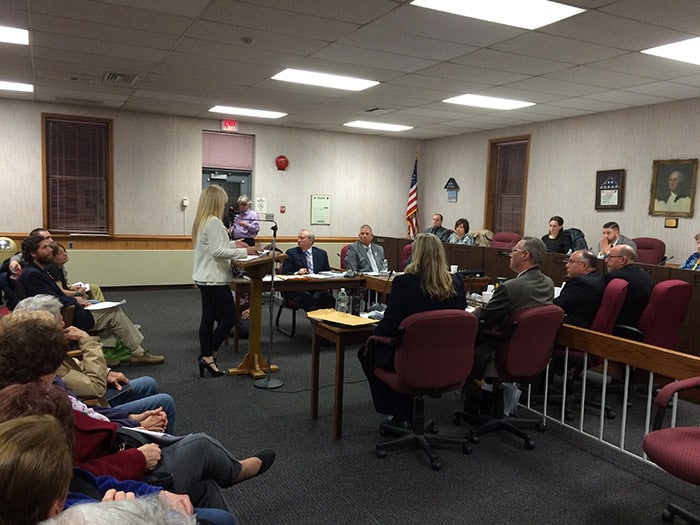
BERKELEY – Marijuana advocates came from near and far trying to have the governing body change their ban of businesses that sell marijuana recreationally.
Gov. Phil Murphy had made it a campaign promise to legalize recreational sale of the drug. This prompted many local towns to decide whether they want stores that sell marijuana within their borders.
Berkeley’s Township Council chose to ban it. The language in the ordinance states, in part: “The sale of marijuana and paraphernalia associated with marijuana use is hereby prohibited within the Township of Berkeley.”
At the most recent Township Council meeting, several people came to try to convince the council members to change their minds.

Members of the governing body didn’t respond. Councilman Thomas Grosse, who was running the meeting, only informed the speakers that the Township Council had already passed the township-wide ban.
When the council introduced the measure earlier this year, they spoke of marijuana being a gateway drug, legal difficulties with the issue, and trying to combat an opioid epidemic while saying marijuana is legal.
The advocates came from many towns, but some were local. They had made appearances at meetings for Toms River Council and the Ocean County Freeholders. Many of their statements were very similar to what was said at those venues. Two members of the United Food & Commercial Workers Local 152, one of them from Forked River, advocated for marijuana sales because cannabis workers fall under their purview.
Cindy Ruggiero lives in Eastampton now, but she told a story about her father, Cliff Wright, who was one of the founding members of the Bayville First Aid Squad. She said when he was dying, and he was on hospice, he was miserable and relied on others’ help for his needs. When she treated him with cannabis oil, there was a marked improvement and he was able to take care of some of his needs.
However, his health went south when he was put on morphine and taken off the cannabis oil.
“The truth is, it is a medicine,” she said.
Laurie Singer is a Toms River resident who advocated for the sale of marijuana in Berkeley, and did so in her town as well. She suggested that some ordinances can be made to apply to the drug. A law could ban open containers of marijuana in a vehicle, the same way there is a law banning open containers of alcohol. A town can also zone areas around schools and drug treatment centers as being prohibited from places where marijuana could be sold. She said the legalization community wants to work with law enforcement officials and lawmakers to keep it out of the wrong hands, such as teenagers.

Many people spoke on behalf of medicinal marijuana. When Berkeley Council members passed the ban, they specified that medical use would not be banned. However, medicinal patients have stated that the programs are very limited and some choose to acquire it other ways.
“I am going to look you in the eye, as I’m dying in front of you,” said Jeff Oakes, an Oceanport resident who has stage 4 cancer. He said cannabis allows him to function through surgery and treatment without relying on any prescription opioids.
His wife, Mary, explained how their son got hooked on Xanax after a car crash, and used cannabis to break his addiction.
Edward “Lefty” Grimes, an activist from East Hanover, came and filmed portions of the meeting. He said that many people use medical cannabis as a way to wean themselves off painkillers and an opioid addiction.
“It’s an exit drug, not a gateway drug,” he said.
Brandon Chewey, from Asbury Park, said he was a heroin addict for 11 years, and people like him needed cannabis to be able to adjust back into being a functioning member of society.
“I don’t want to see children in my community under the age of 26 using cannabis,” he said, noting the age at which experts say the frontal lobe of the brain stops developing.
Jeffrey King of Eatontown said that banning sales was premature since no one knows what the final legalization will look like yet. He said that a regulated marijuana industry would provide a safer product than what’s on the streets.






